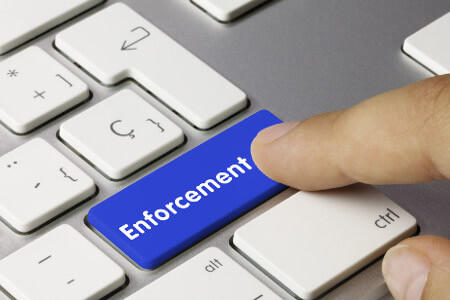The introduction of European Enforcement Orders in 2005 was designed to speed up the enforcement of certain judgements and to keep costs down. Effectively they made a judgement obtained in any member state within Europe instantly enforceable in another member state within Europe.

Let us take, for example, the case of a Bank in Cyprus suing somebody for non-payment of their mortgage (whether it is a Swiss Franc Mortgage or not). If the Bank wins the Court case in Cyprus they can then ask the Court in Cyprus to issue a European Enforcement Order. The Court in Cyprus then issues the EEO and using this the Bank seeks the registration of the European Enforcement Order in the High Court in England and proceeds to enforce it as if it had been issued by a British Court
European Enforcement Orders, commonly known as EEOs, are not available in every type of legal case;
1. They can only be used in uncontested claims.
This means that either;
- The debtor has expressly agreed to the debt by admission or way of a settlement between the parties that is approved by the court or finalised before court proceedings.
- The debtor never objected to the debt
- The debtor did object to the debt but then never appeared or wasn’t represented in Court to defend their claim. In this case the failure to appear is seen as an acceptance of the debt
- The debtor has agreed with the debt by way of a written document with their signature on it and which has been authenticated by a public authority.
2. They can’t be used in every type of case
- You can only obtain an EEO in civil or commercial cases
- You can’t obtain an EEO for;
- Family / matrimonial law cases,
- Wills and inheritance,
- Bankruptcy, winding-up or insolvency
- Etc.
3. The original judgement is final
That is to say that the judgement obtained in the other country is final and there is no longer a right of appeal.
Because a European Enforcement Order can only be issued for uncontested claims you would imagine that there is nothing that can be done when you receive one. However, we are often contacted by people who have received an EEO and want to know what they can do about it. The honest answer is that in most cases there is very little that can be done about the situation if you have received an EEO. However, in certain circumstances you may be able to set the EEO aside.
If you receive an EEO then this should contain details of how to dispute the EEO itself. Broadly speaking you can challenge an EEO if you can prove that;
- That you did not have time to defend yourself in the original legal proceedings or were not able to defend yourself in those proceedings.
- The dispute was contested
- That there is still an active appeal.
- The Service of the original Court documentation to you was defective
Even if you are successful in challenging the European Enforcement Order doesn’t mean that you have won the whole case – all it means is that the EEO cannot be enforced and the matter has to go back to the Court in the country where the original hearing was heard to finalise. Therefore challenging the EEO may restore your right to defend yourself if you have a valid defence.
If you would like to know more about the European Enforcement Orders or have received one and would like to discuss your options then you can contact our legal team.
Disclaimer – International legal issues are a complex area of law and this information is no substitute for independent legal advice on an individual basis taking into consideration your personal circumstances and legal requirements. This information is provided to provide general information only and was correct at the time of publishing. The legal position in relation to international transactions can change frequently and this page may not have been updated following any changes in the law. You should therefore not rely on this information and should seek legal advice in relation to your personal circumstances.
